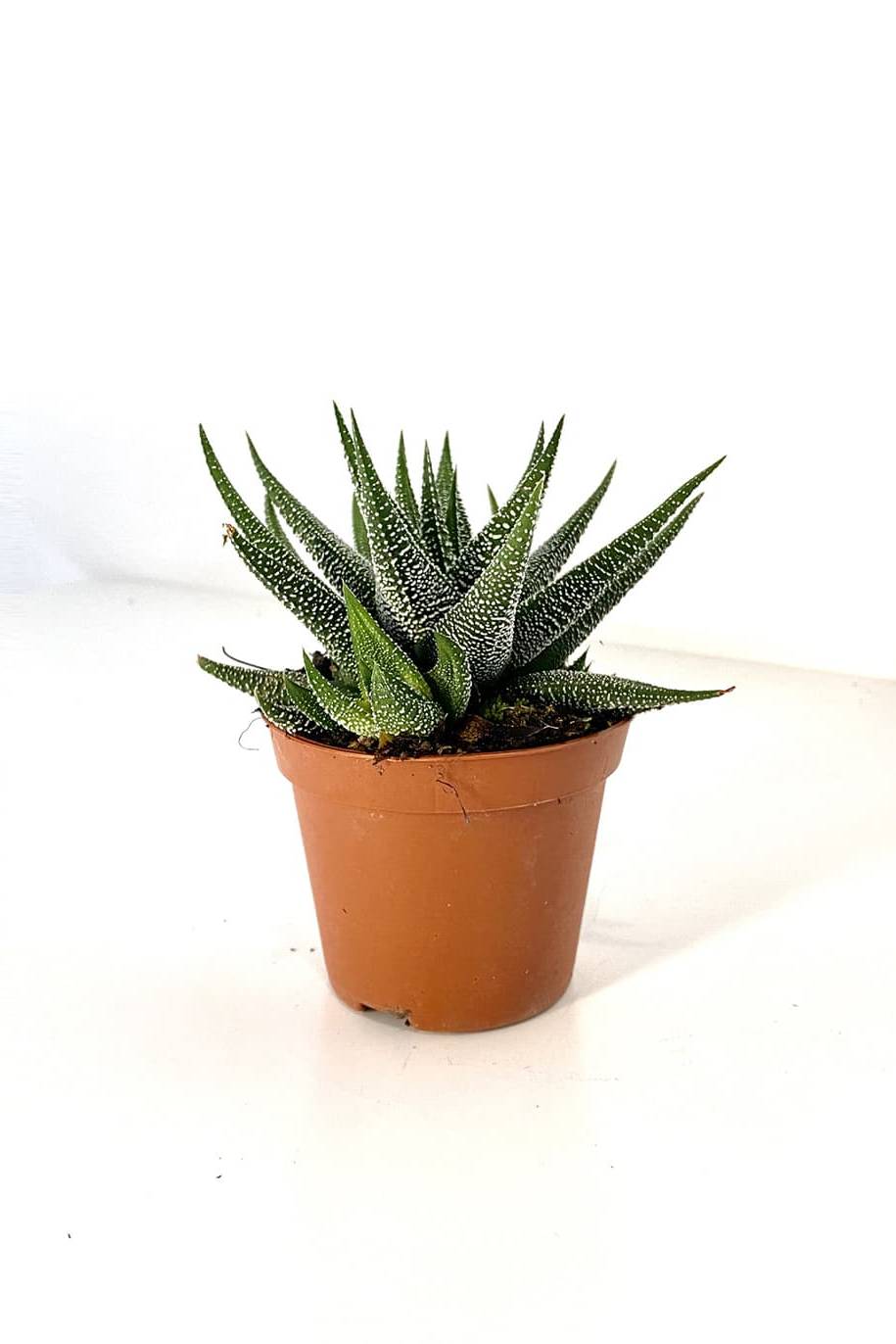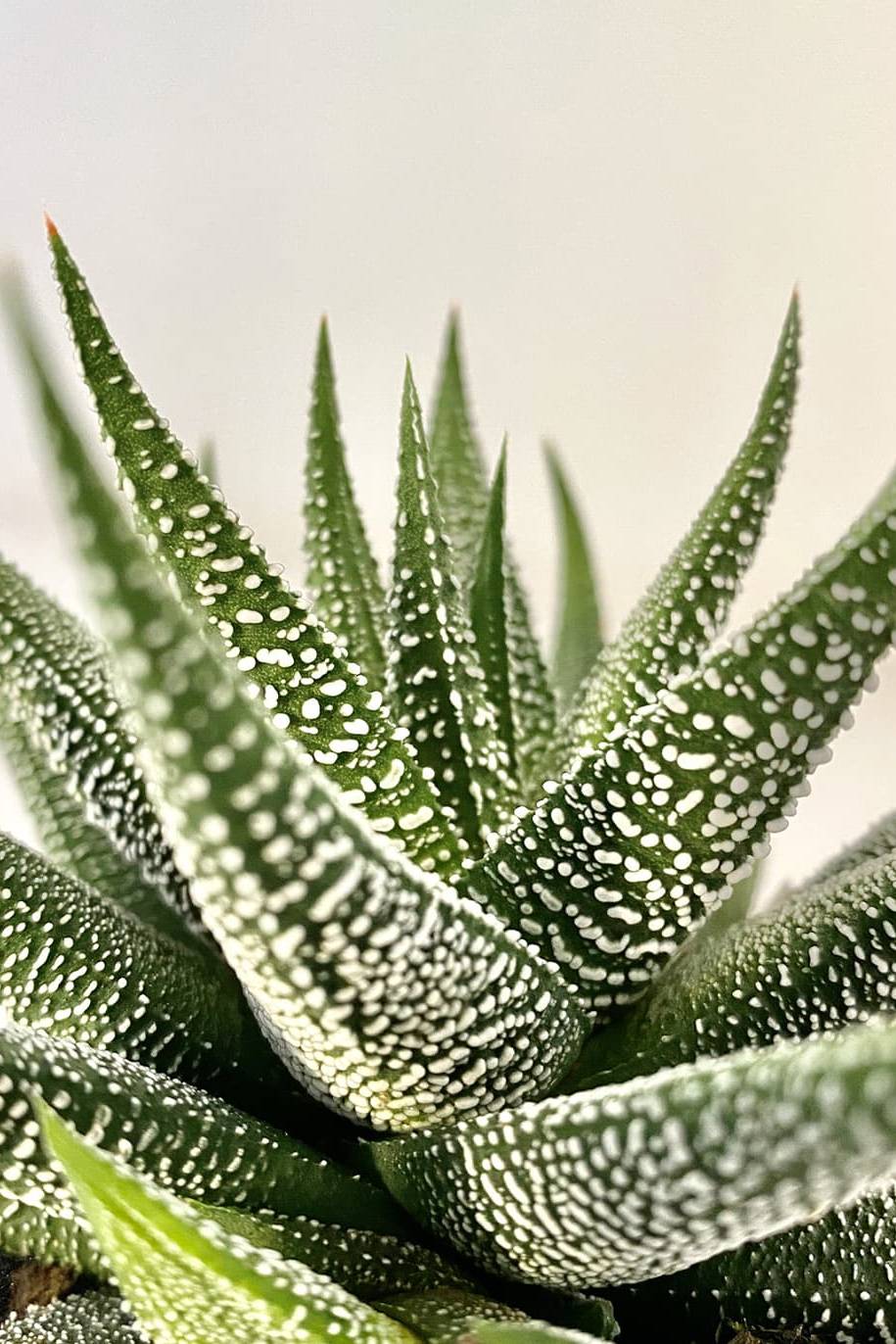Watering
Spray water once in 2 weeks to moisten soil but be sure water does not pool up at the bottom of container which can cause rotting. Allow soil to dry between waterings.
Dismiss



SKU 760
Spray water once in 2 weeks to moisten soil but be sure water does not pool up at the bottom of container which can cause rotting. Allow soil to dry between waterings.
Bright indoor light or indirect sun. 6 hours to 8 hours
Maintain temperatures between 18°C - 24°C. Avoid draughts as these can create undesirable temperature fluctuations. Consider giving your plant an occasional misting twice every week to maintain the optimum humidity level.
Apply succulent fertilizers once in 40 days. For best results use Folikraft ready to use Succulent Plant Food.
Haworthia is delightful little succulents that are very attractive small houseplants. These small, low growing plants form rosettes of fleshy green leaves that are generously covered with white, pearly warts or bands, giving them a distinctive appearance. Generally easy to grow, the same best practices that yield healthy aloe and echeveria plants will also produce beautiful Haworthia.
Haworthia species like bright light, but not direct sunlight. These grow in similar conditions to other succulents. In their native environment, they are often found in the shade of a rock or other object. They do best in a room with a window that provide bright light for a few hours a day. White or yellow leaves usually signify too much sun. If the plant isn't getting enough light, its green color will fade. Use a cactus mix or very fast-draining potting soil. Water evenly and generously in the summer, letting the soil media dry out between waterings. In the winter, reduce watering to every other month. Never allow water to collect in the rosette. Fertilize during the summer growing season with a cactus fertilizer. Don't feed during the winter.
"Sign up for our emails and get exclusive discounts on all your favorite plants and gardening products!"
You’ve subscribed to: Plantshop.ae Newsletter.
You can always manage your subscriptions through the “Unsubscribe” link at the foot of each Plantshop.ae newsletter.